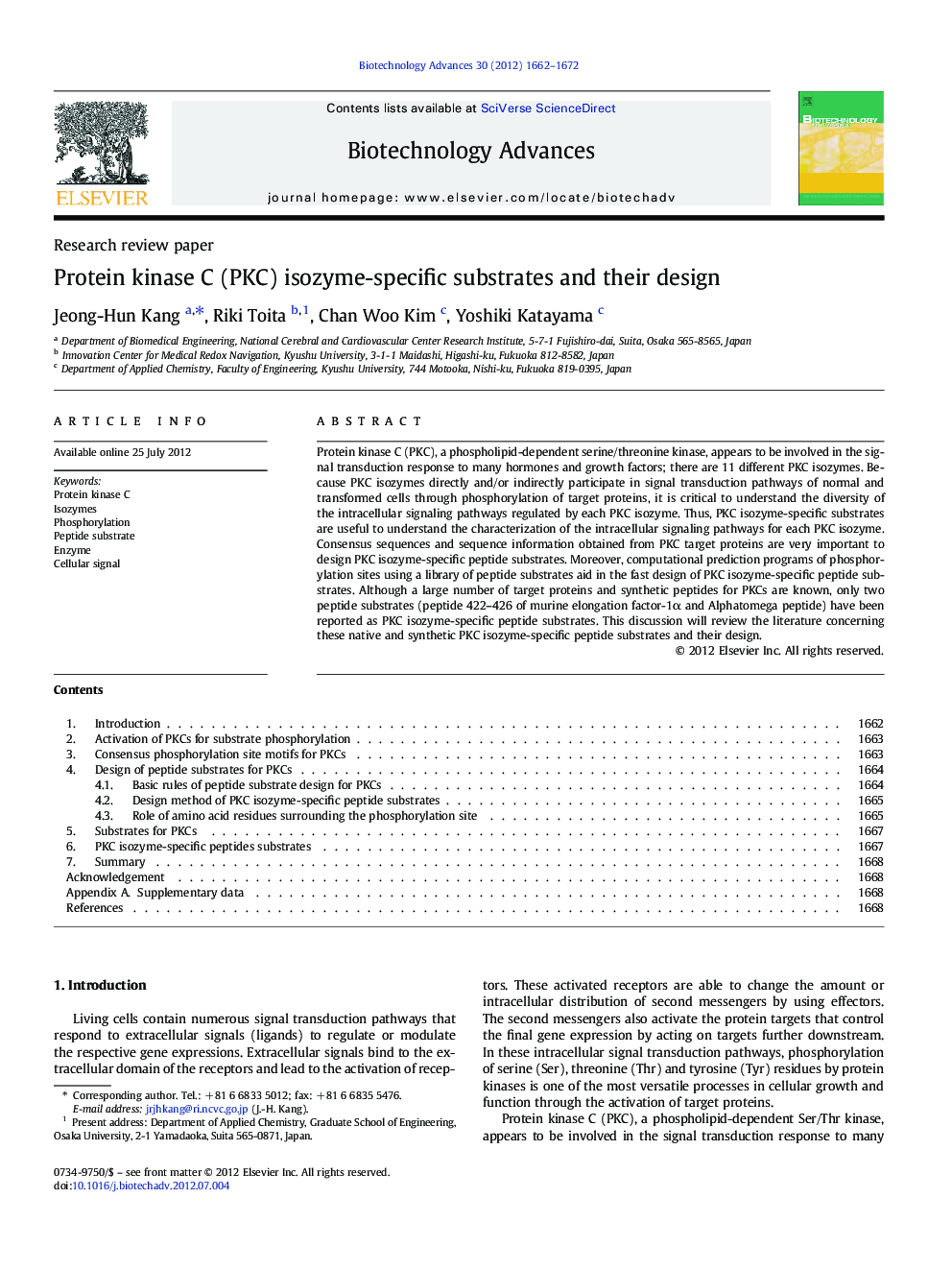| Article ID | Journal | Published Year | Pages | File Type |
|---|---|---|---|---|
| 6486770 | Biotechnology Advances | 2012 | 11 Pages |
Abstract
Protein kinase C (PKC), a phospholipid-dependent serine/threonine kinase, appears to be involved in the signal transduction response to many hormones and growth factors; there are 11 different PKC isozymes. Because PKC isozymes directly and/or indirectly participate in signal transduction pathways of normal and transformed cells through phosphorylation of target proteins, it is critical to understand the diversity of the intracellular signaling pathways regulated by each PKC isozyme. Thus, PKC isozyme-specific substrates are useful to understand the characterization of the intracellular signaling pathways for each PKC isozyme. Consensus sequences and sequence information obtained from PKC target proteins are very important to design PKC isozyme-specific peptide substrates. Moreover, computational prediction programs of phosphorylation sites using a library of peptide substrates aid in the fast design of PKC isozyme-specific peptide substrates. Although a large number of target proteins and synthetic peptides for PKCs are known, only two peptide substrates (peptide 422-426 of murine elongation factor-1α and Alphatomega peptide) have been reported as PKC isozyme-specific peptide substrates. This discussion will review the literature concerning these native and synthetic PKC isozyme-specific peptide substrates and their design.
Related Topics
Physical Sciences and Engineering
Chemical Engineering
Bioengineering
Authors
Jeong-Hun Kang, Riki Toita, Chan Woo Kim, Yoshiki Katayama,
